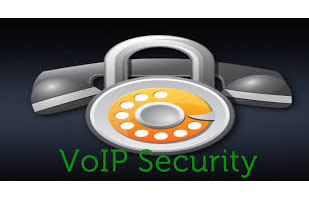VoIP security is critical if you want to use your phone without worries. If you are a VoIP user, it is imperative to learn ways to keep your communication system protected from unwanted breaches and hacks. VoIP has revolutionized communication in a big way; however, it has also given rise to a number of security concerns. These concerns over the last few years have been the center point of several debates.
The introduction of VoIP technology is coupled with the advent of a number of hacking software as well. Thanks to these software packages, instances of hacking have reached an all time zenith over recent times. Thus, the situation demands a strong enough encryption for the VoIP. A strong VoIP security blanket would ensure that data pilferage is kept at bay. It also ensures that no one is able to eavesdrop on conversations carried over VoIP communication devices.

All VoIP based calls are made digitally. This makes tapping of VoIP calls far easier than tapping conversations carried over conventional telecommunication lines. That is the reason, VoIP security is so important and encryption is the best way to maintain privacy.
Let us discuss some of the easiest and most guaranteed ways of data encryption of a VoIP based network.
Zfone for VoIP Security
This is one most effective software packages that is designed and developed to provide VoIP security, with the use of ZRTP or Z and Real-time Transport Protocol. ZRTP is a cryptographic key-agreement protocol, meant for negotiating the encryption keys between the end point pair of a VoIP phone call, based on Real-time Transport Protocol.
Service Provider Encryption
Service Provider Encryption provided by Cryptographic Service Provider (CSP) is a specially designed software library, which is programmed to implement Microsoft CryptoAPI (CAPI). CSPs put into action various effective encoding and decoding functions usable by the computer application programs. These functions are used for carrying out operations like providing strong user authentication or security to emails.
IP Security and Transport Layer Security
Transport Layer Security (TLS), which is an advanced version of Secure Sockets Layer (SSL) is a cryptographic protocol. It is designed to provide communications security to a computer network. The protocol is available in different versions to be used in various applications like internet faxing, web browsing, instant messaging, email, not to mention VoIP based communication systems.
Internet Protocol Security (IPsec), on the other hand is a protocol suite designed for securing the Internet Protocol (IP) communications. It does so through the process of authenticating as well as encrypting each and every IP packet of a particular communication session. IPsec includes protocols that are programmed to establish mutual authentication between the agents at the beginning of a session. It also includes negotiation of the cryptographic keys used during that session. IPsec is used for safeguarding transfer of data between a couple of hosts (host-to-host), a couple of security gateways (network-to-network), or between a security gateway and a host (network-to-host). Internet Protocol security (IPsec) uses various cryptographic security services to provide foolproof VoIP security.
Session Initiation Protocol
This is another very widely used protocol that provides VoIP security. It basically is a communication protocol that is designed for signaling as well as controlling the multimedia communication sessions.
The protocol actually defines the messages, which are transferred from the two end points that control the termination, establishment and other critical elements of a particular VoIP call.
There are endless ways to provide security and safety to a VoIP based communication system. Experts are of the opinion that the more security blankets are provided, the better it is for the VoIP set up from the safety point of view. However, the ones mentioned are the most practiced and tried and tested, for the purpose of providing VoIP security.
As more and more organizations are transitioning from the traditional public branch exchanges (PBXs) to the Internet-based PBXs, the Internet is becoming an enticing hunting ground for the malicious hackers. Hence, against this background, more and more encryption methods are being adapted by people to provide security to VoIP communication systems.
About One Call Communications
One Call Communications is a leading provider of phone systems in North Carolina. We serve thousands of clients across Greenville, Rocky Mt., Goldsboro, Smithfield, & Wilson. We sell, install, and service business telephone equipment, voicemail and, voice and data network cabling. We install and service premium quality products from Toshiba Telecom. We serve both commercial and industrial clients.
Call us today for your networking and communication requirements.



Leave a Reply